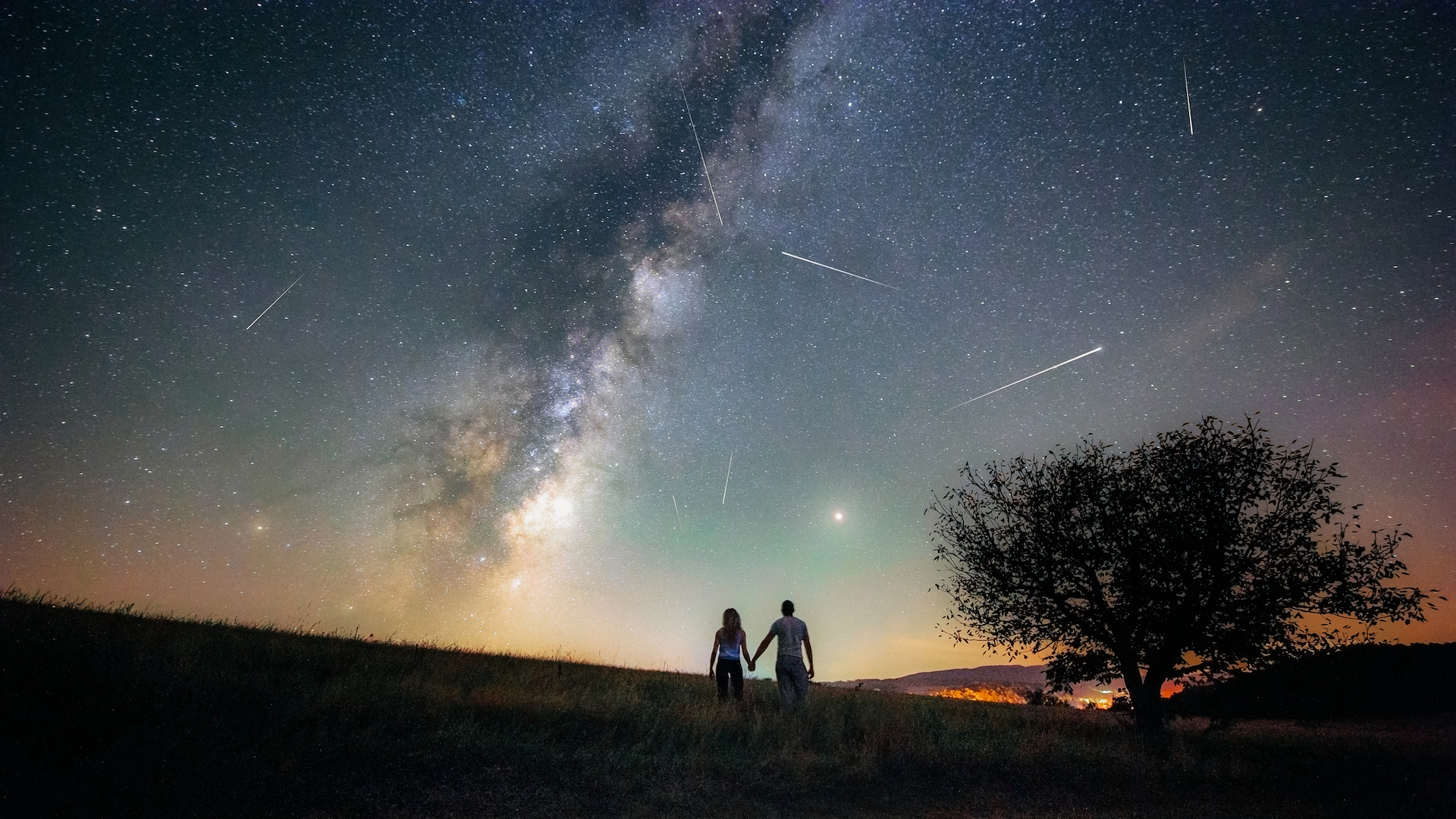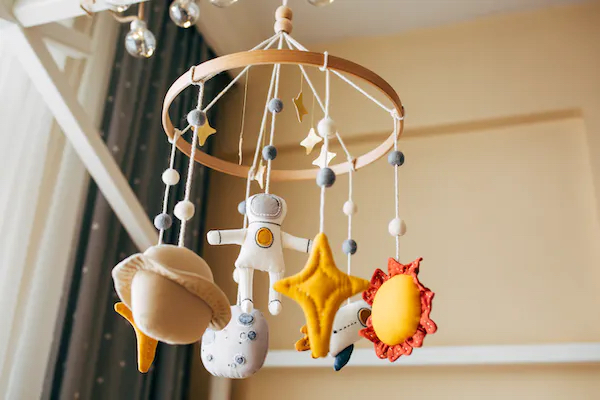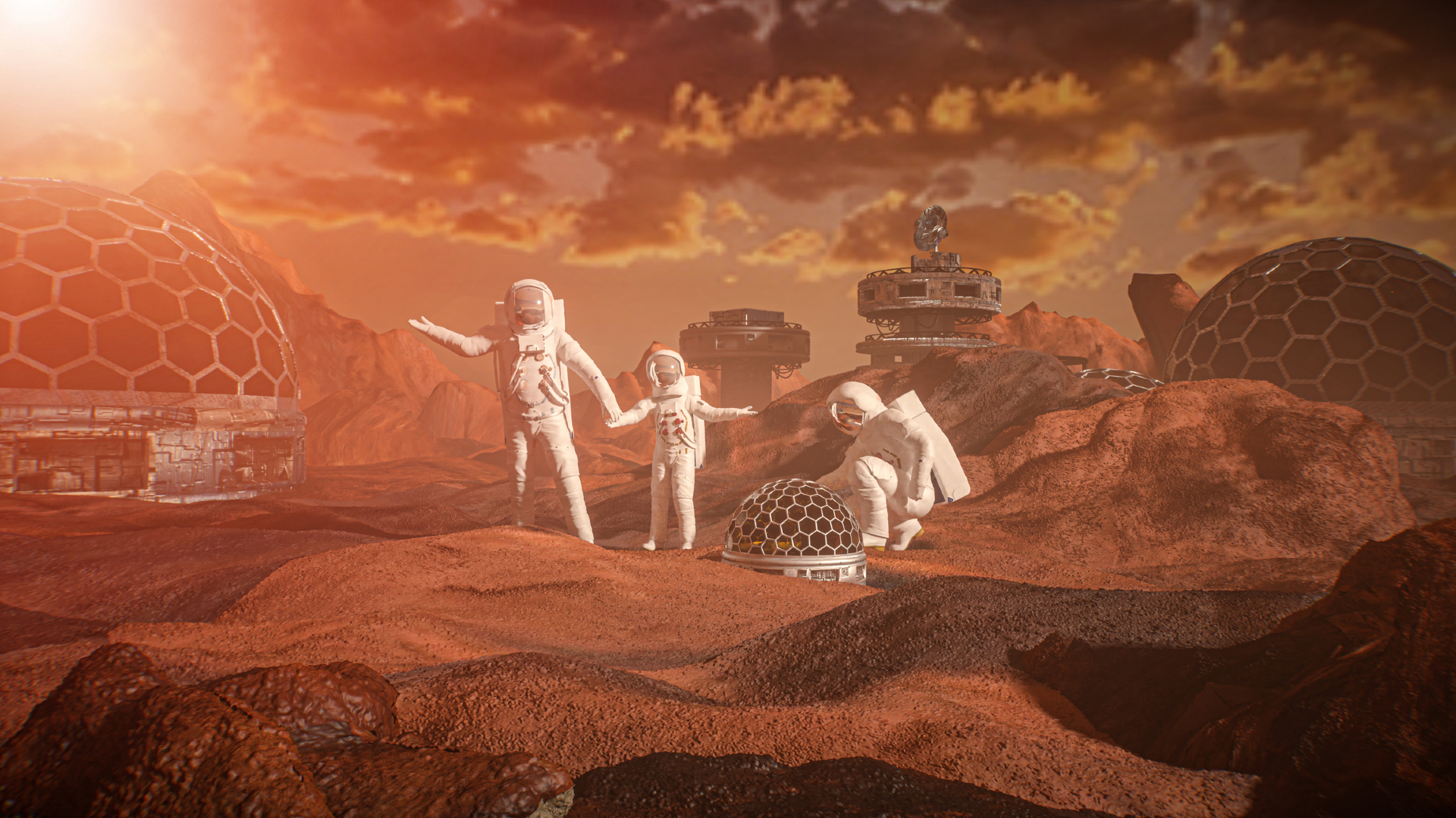
Sex between space tourists will happen eventually. But are we ready for babies conceived off Earth?
Humans have a knack for sharing intimate moments in unlikely places...

Breaking space news, the latest updates on rocket launches, skywatching events and more!
You are now subscribed
Your newsletter sign-up was successful
Want to add more newsletters?

Delivered daily
Daily Newsletter
Breaking space news, the latest updates on rocket launches, skywatching events and more!

Once a month
Watch This Space
Sign up to our monthly entertainment newsletter to keep up with all our coverage of the latest sci-fi and space movies, tv shows, games and books.

Once a week
Night Sky This Week
Discover this week's must-see night sky events, moon phases, and stunning astrophotos. Sign up for our skywatching newsletter and explore the universe with us!

Twice a month
Strange New Words
Space.com's Sci-Fi Reader's Club. Read a sci-fi short story every month and join a virtual community of fellow science fiction fans!
This article was originally published at The Conversation. The publication contributed the article to Space.com's Expert Voices: Op-Ed & Insights.
David Cullen is a Professor of Bioanalytical Technology at Cranfield University in England.
Humans have a knack for sharing intimate moments in unlikely places, as membership of the mile-high club demonstrates. So there is a significant chance that the launch of the space tourism sector may be swiftly followed by the first sex in space.
But having researched the issue, my colleagues and I believe that space tourism companies haven't adequately prepared for the consequences of people joining what we could call the "Kármán line club" (referencing the 100km-high boundary between Earth and the rest of the cosmos).
Talk of space tourism has always been in terms of the distant future. But sub-orbital space tourism – short flights with only a few minutes of spaceflight and weightlessness – already exists. Tickets range from freebies, to costing millions of dollars.
Much longer flights are just around the corner. Companies such as Elon Musk's SpaceX have well-established track records of developing spacecraft faster than the public sector. SpaceX's larger and more capable Starship spacecraft will likely operate routinely in the next few years.
Related: Most Americans expect routine space tourism by 2073, but few would actually try it: report
Breaking space news, the latest updates on rocket launches, skywatching events and more!
When, not if
Flights have been reserved and passenger lists assembled for private flights that will loop around the Moon. Spacecraft such as Starship will have the capacity for tens of passengers, in a large cabin environment, possibly with private cabins.
Considering that space travel is no longer reserved for professional astronauts, the various motivations of space tourists and upcoming spacecraft developments, we concluded that in-space sex will probably happen within the next ten years.
The real concern is not the sexual interactions themselves, but rather if they lead to human conception in space. Early orbital space tourism flights are expected to last for days to weeks, so only the early stages of human reproduction could happen in space.
Passengers will not be allowed to board if they are already known to be pregnant, although the space tourism industry does not appear to have considered concealed or unknown pregnancies. Sometimes women don't realize they are pregnant until they go into labor.
From decades of human spaceflight, we already know weightlessness and increased levels of ionising radiation has a profound effect on our bodies. We don’t know how this will affect the physiological processes of reproduction.
Astronauts routinely suffer muscle and bone wastage as their bodies no longer have to resist the forces of gravity. On Earth, gravity influences the distribution of body fluids, such as blood. A lack of gravity can result in increased pressure inside the skull which can make people's vision blurry and even change the brain's structure.
Limited experiments on mouse embryos, which include one that used a mini incubator on a satellite, have shown changes in embryo viability after they were exposed to space. Knowledge of the impact on human reproduction is effectively zero, but we can assume that there will be effects.
Therefore, there is an unknown potential for developmental abnormalities in human embryos conceived in space. Additionally, there could be an increased risk of ectopic pregnancy in weightlessness conditions (when the embryo attaches outside the uterus, for example in the fallopian tubes).
Even if space tourists use contraception, we can’t be sure it will be as effective outside planet Earth. There have been no studies on how contraceptives will be affected by space environments.
Taking responsibility
For the space tourism industry, there are commercial risks of litigation, reputational damage and financial loss if people conceive during spaceflight – as well as ethical and reproductive rights issues. Our research found little evidence that the sector is taking steps to mitigate these risks. There is little anecdotal evidence from behind the scenes.
There is also a darker side to consider – the risk of sexual assault in space. Imagine trying to evade the advances of a fellow passenger or staff member during spaceflight. You would be completely trapped.
The space tourism industry and other relevant parties should urgently come together to discuss these issues and formulate a strategy to protect all those involved. A simple solution could be a combination of pre-spaceflight counselling with all space tourists about the risks of human conception in space. Legal waivers absolving the space tourism operators of liability if human conception was still to occur could also be considered.
Space tourism is already happening and it seems likely that sexual interactions between some participants will occur very soon. The question is whether the sector will be prepared for the possible consequences.
David Cullen graduated with a BSc in Biochemistry from the University of East Anglia and obtained his PhD in Biosensor Technology from the University of Cambridge. He continued postdoctoral studies in the same group before joining Cranfield University in 1994, initially as a lecturer in the area of Biophysics and Biosensors. Since 2008 he has been Professor of Bioanalytical Technology.

